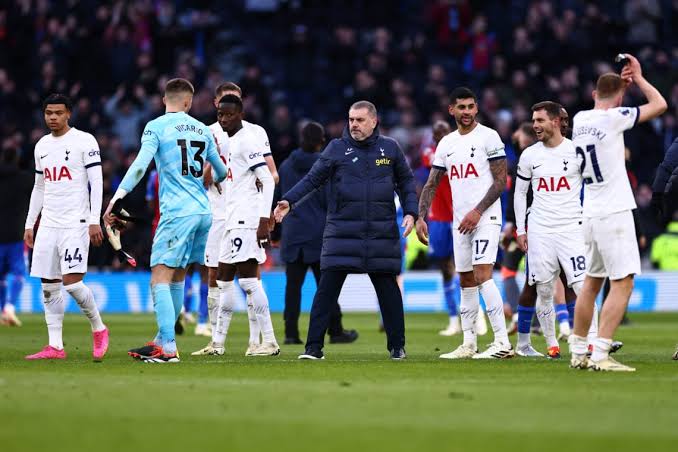Tottenham demands social media bans for ‘cowards’ amid ‘nasty’ Brennan Johnson abuse

On September 15, 2024, following Tottenham’s narrow 1-0 defeat to Arsenal at the Tottenham Hotspur Stadium, reports surfaced that Brennan Johnson had deactivated his Instagram account due to a barrage of online abuse. This incident prompted Bryan King, a former scout for Spurs, to speak out against the actions of these so-called supporters. King characterized the individuals responsible for the abusive messages as “social media cowards,” highlighting the disconnect between online anonymity and real-world accountability.
The abuse directed at Johnson was described as “nasty,” reflecting a significant departure from constructive criticism. While athletes must accept scrutiny regarding their performance, the threshold for acceptable discourse is crossed when comments become personal attacks.
This behavior not only undermines the mental health of the players but also tarnishes the image of the clubs they represent. As Johnson’s situation illustrates, online abuse can lead to significant emotional distress, prompting players to withdraw from social media platforms altogether.
Supporters play a crucial role in the identity and culture of a football club. They are often seen as an extension of the team, embodying its values and spirit. However, the actions of a small yet vocal segment of fans can cast a shadow over this relationship.
According to King, those who engage in abusive behavior do not represent true supporters of Tottenham. Instead, they reflect a misguided interpretation of fandom that prioritizes personal grievances over loyalty and respect for the players.
The psychological effects of online abuse on athletes cannot be understated. As public figures, players like Brennan Johnson are subjected to intense scrutiny, and the pressure to perform can be overwhelming. When this pressure is compounded by vitriolic online comments, it can lead to serious mental health issues, including anxiety and depression.
Johnson’s muted celebration following a crucial goal against Coventry City on September 18 highlights the emotional toll that such abuse can take. His reluctance to share in the joy of the moment with supporters is a poignant reminder of the broader implications of online harassment.
In light of these events, it is imperative to address the issue of accountability on social media platforms. Bryan King’s call for bans on those who engage in abusive behavior is a necessary step towards creating a safer online environment for athletes. Current regulations surrounding online conduct often fall short, allowing individuals to hide behind anonymous profiles while perpetuating a culture of toxicity.
Implementing stricter policies that require users to verify their identities could serve as a deterrent against abusive behavior. Moreover, social media companies should take a proactive approach by developing algorithms that can identify and flag abusive content more effectively. This would not only protect players like Johnson but also foster a more respectful discourse among fans.
The responsibility to combat online abuse extends beyond social media platforms. Football clubs, players, and supporters must collectively work towards fostering a culture of respect. Clubs like Tottenham have a role to play in educating their fan base about the impact of their words and actions. Initiatives that promote positive engagement, such as workshops and campaigns focusing on mental health and respect, could help reshape the narrative around fandom.
The case of Brennan Johnson is not an isolated incident but rather a reflection of a broader issue within the world of sports. The intersection of social media and professional athletics has created new challenges that must be addressed with urgency.
As we advocate for changes in social media policy and a collective effort to promote respectful engagement, it is crucial to remember that athletes are individuals deserving of respect and dignity, both on and off the field. By taking a stand against online abuse, we can begin to create a more supportive environment that celebrates the achievements of players while protecting their well-being.
In sum, the fight against online abuse requires a concerted effort from all stakeholders involved in the world of sports. Only through education, regulation, and a commitment to positive engagement can we hope to foster an environment where athletes like Brennan Johnson can thrive without fear of harassment. The responsibility lies with us all—clubs, supporters, and social media platforms alike—to ensure that the integrity of the game and the well-being of its players remain paramount.















